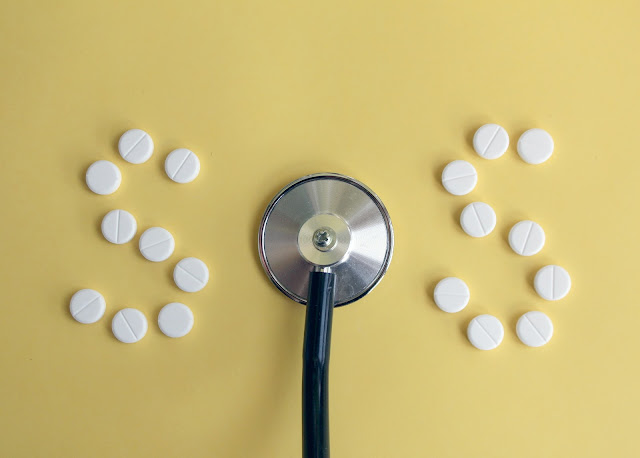Antibiotics are important medicines that have been used to treat bacterial infections for 70 years. disrupting processes bacteria need to survive or preventing them from reproducing.
 |
| Photo by Maria Ionova on Unsplash |
But these drugs are becoming less and less effective against bacterial infections and could one day run out.
Right now there aren't any alternatives that could take their place.
It’s conceivable that in 20 years, treatments such as chemotherapy and simple surgery will become impossible because they rely on antibiotics. We are facing a future where a cough or cut could kill once again.
How a bug becomes a superbug?
So how do bacteria become resistant to antibiotics in the first place? At a molecular level these tiny organisms are finding ways to outsmart the drugs designed to kill them. In the case of ‘superbugs’ they don’t just survive - they thrive.
We make the problem worse!
 |
| E. coli, photo by Pixabay.com |
Our actions speed up antibiotic resistance in bacteria, especially in the areas of farming. Resistance tends to develop where bacteria are frequently exposed to antibiotics and when there are lots of animal or human hosts. Resistant bacteria can spread from farms and hospitals to the public both directly and indirectly, via the water supply. People then pass the bacteria between themselves, by coughing or contact with unwashed hands.
healthcare. Resistance tends to develop where bacteria are frequently frequently exposed to antibiotics and when there are lots of animal or human hosts. Resistant bacteria can spread from farms and hospitals to the public both directly and indirectly, via the water supply. People then pass the bacteria between themselves, by coughing or contact with unwashed hands.
Also, pharmaceutical research hasn’t kept up with the growing resistance of bacteria to antibiotics. No new types (classes) of antibiotics have been discovered for 25 years and some strains of bacteria now are unharmed by nearly all the drugs designed to kill them, making infections by these bacteria almost untreatable. Experts have warned that we’re decades behind in the race against the superbugs. We’ve already exploited the most obvious naturally occurring antibiotics. So creating new ones requires much more time and ingenuity, but currently, there is little financial incentive to do so.
Superbugs are now a major global health threat with multi-drug resistant bacteria causing more than 2 million detected and documented infections every year.
The actual number is suspected to be petrifying.
There are very few alternatives to combat superbugs. As technology is already on the backfoot against these feisty little customers, health executives are having to improvise. Hospitals are preventing bacterial infections by improving hygiene practice. Health workers are being taught about the problem of antibiotic resistance and doctors are being encouraged not to over-prescribe antibiotics.

